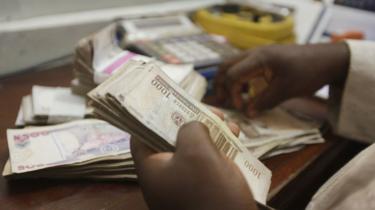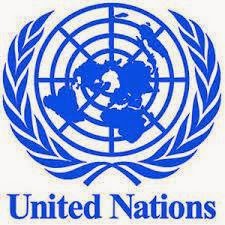OP-ED
Garba Shehu
"#BUHARIGATE " AS THE LIMIT OF OBSTRUCTIONIST POLITICS
By Garba Shehu, SSAP (Media and Publicity)
As the war on corruption heightens, the political battle-line between the governing All Progressives Congress, APC and the opposition Peoples Democratic Party, PDP has sharply been drawn.
While leaders from both parties voice out their support for the clean-up of the country by ridding it of corruption, the National Working Committee of the PDP seems clearly to be working contrary to the anti-corruption
Doing this gives the PDP the illusion of being an effective opposition party but taken in the context of national interest and the mood of the nation, it is doubtful it it is yielding anything beyond limited political returns. To most Nigerians, the cacophonous opposition is just a media spectacle to distract or mellow the President.
After an historic loss in an election to the opposition for the first time in the annals of this country’s political history, PDP has not looked inwards in any serious way to seek its revival. The first and major leap at reform ended disastrously when first, the party establishment rejected a well-timed apology tendered on its behalf for their past failures. Then, the leader of the reform movement got himself mired in allegations leading to court charges of the theft of billions of Naira voted for weapons purchase to fight terror in the North East. Chief Raymond Dokpesi's trial ( and Col. Dasuki's) is no doubt a serious blow to any prospects of a turn-around in the PDP.
The party did not seek democratize their internal organization, a major reason for their implosion leading to the loss of the election or began thinking innovatively about the challenges of modern day Nigeria, nor have they got a "Plan B" that is inviting to the voters.
It is this failure to reckon with, or look at the real issues confronting the party and the nation that led to their call for an investigation of President Buhari for having been supplied two jeeps by the erstwhile Jonathan administration after the personal bullet-proof jeep he owned was bombed by yet unknown assailants.
As the Special Adviser to the President, Femi Adesina said, issuance of the cars,soon after this incident was merely a face-saving move, intended to cover the government's failure to keep its duty to this particular former leader. The law, cited as the Remuneration of Former Presidents and Heads of State (and other Ancillary Matters), entitles former Nigerian Presidents including General Muhammadu Buhari to “three vehicles to be bought by the Federal Government and liable to be replaced every four years”.
Cars are just a few in a litany of entitlements written in that law although it is contestable to say that General Buhari had been given his due entitlements by successive administrations
General Abacha came on the saddle and wanted to throw everything at Buhari who, knowing his very nature declined virtually but his military pension. The military in particular treated him so badly that its leaders kept silent when the PDP charged that he didn't have WAEC papers. One shameless Army Records officer said that the former Head of State had no records at all under their system. General Buhari went without a full compliment of armed guards from the army he served at the highest level until the dastardly bomb attack on his convoy in April 2014. It was at this time that the Chief of Army Staff at that time thought it necessary to reinstate the armed convoy to protect him. When they brought the two cars within a few days of his being bombed, the staff of the General were merely informed that this was from the Federal Government in fulfillment of its obligation to him. Since this was an entitlement long-overdue, not minding that it came short of what was expected, there was absolutely nothing wrong on the part of the General for accepting that which was due to him.
This hashtag “#Buharigate” was intended as a counterpoise to "Dasukigate," the phenomenal corruption scheme by which money intended for weapons to fight terror was shared among PDP leaders. It was a fake intervention and a malicious propaganda against the president, obviously intended to detract from his enormously huge reputational capital, the basis on which the APC nation-wide victory was founded.
The #Buharigate failed to gain traction because was seen as an opposition overreach and a desperate attempt to tarnish his hard-earned name and nothing more. No serious blogger therefore paid a serious attention to it.
This baseless allegation that the President had benefitted from the diversion of money intended to fight insurgency under the former National Security Adviser equally underlines the cruel nature of today’s politics, that even the best personal examples cannot keep a leader from the tar brush of the opponent.
Apart from seeking to mellow the President, I suspect that the opposition had thought these attacks would revive the collapsed fortunes of the PDP while at the same time projecting their leaders as victims of persecution in the hands of the APC administration.
What however is encouraging in the country today is that Nigerians have thrown their full weight behind the war on corruption. This itself is an account the constructive nature of the government’s engagement against the vice and the determination with which it is being fought. Adding impetus and flavor is the frustration at the routionisation of corruption by the last administration and their inadequate and impotent efforts to curb and punish high-profile offenders.
My concluding augment is that President Buhari’s election and war against terrorism and corruption have become a template. In Niger, Chad and Ghana where there will be elections next year, opposition candidates are parading themselves as the “Buhari” of their own country.
President Buhari must have himself been embarrassed by calls, through newspaper articles, posters and banners in the course of his visits to these friendly countries, saying “we want Buhari type elections; we will wage Buhari-type anti-corruption
President Buhari was and is far, far away from, and remains untouched by the “Dasukigate”. “#Buharigate” is therefore a fraud and an unbecoming spectacle designed to tarnish the illustrious record of the President so as to mellow his anti-corruption
By Garba Shehu, SSAP (Media and Publicity)
As the war on corruption heightens, the political battle-line between the governing All Progressives Congress, APC and the opposition Peoples Democratic Party, PDP has sharply been drawn.
While leaders from both parties voice out their support for the clean-up of the country by ridding it of corruption, the National Working Committee of the PDP seems clearly to be working contrary to the anti-corruption
Doing this gives the PDP the illusion of being an effective opposition party but taken in the context of national interest and the mood of the nation, it is doubtful it it is yielding anything beyond limited political returns. To most Nigerians, the cacophonous opposition is just a media spectacle to distract or mellow the President.
After an historic loss in an election to the opposition for the first time in the annals of this country’s political history, PDP has not looked inwards in any serious way to seek its revival. The first and major leap at reform ended disastrously when first, the party establishment rejected a well-timed apology tendered on its behalf for their past failures. Then, the leader of the reform movement got himself mired in allegations leading to court charges of the theft of billions of Naira voted for weapons purchase to fight terror in the North East. Chief Raymond Dokpesi's trial ( and Col. Dasuki's) is no doubt a serious blow to any prospects of a turn-around in the PDP.
The party did not seek democratize their internal organization, a major reason for their implosion leading to the loss of the election or began thinking innovatively about the challenges of modern day Nigeria, nor have they got a "Plan B" that is inviting to the voters.
It is this failure to reckon with, or look at the real issues confronting the party and the nation that led to their call for an investigation of President Buhari for having been supplied two jeeps by the erstwhile Jonathan administration after the personal bullet-proof jeep he owned was bombed by yet unknown assailants.
As the Special Adviser to the President, Femi Adesina said, issuance of the cars,soon after this incident was merely a face-saving move, intended to cover the government's failure to keep its duty to this particular former leader. The law, cited as the Remuneration of Former Presidents and Heads of State (and other Ancillary Matters), entitles former Nigerian Presidents including General Muhammadu Buhari to “three vehicles to be bought by the Federal Government and liable to be replaced every four years”.
Cars are just a few in a litany of entitlements written in that law although it is contestable to say that General Buhari had been given his due entitlements by successive administrations
General Abacha came on the saddle and wanted to throw everything at Buhari who, knowing his very nature declined virtually but his military pension. The military in particular treated him so badly that its leaders kept silent when the PDP charged that he didn't have WAEC papers. One shameless Army Records officer said that the former Head of State had no records at all under their system. General Buhari went without a full compliment of armed guards from the army he served at the highest level until the dastardly bomb attack on his convoy in April 2014. It was at this time that the Chief of Army Staff at that time thought it necessary to reinstate the armed convoy to protect him. When they brought the two cars within a few days of his being bombed, the staff of the General were merely informed that this was from the Federal Government in fulfillment of its obligation to him. Since this was an entitlement long-overdue, not minding that it came short of what was expected, there was absolutely nothing wrong on the part of the General for accepting that which was due to him.
This hashtag “#Buharigate” was intended as a counterpoise to "Dasukigate," the phenomenal corruption scheme by which money intended for weapons to fight terror was shared among PDP leaders. It was a fake intervention and a malicious propaganda against the president, obviously intended to detract from his enormously huge reputational capital, the basis on which the APC nation-wide victory was founded.
The #Buharigate failed to gain traction because was seen as an opposition overreach and a desperate attempt to tarnish his hard-earned name and nothing more. No serious blogger therefore paid a serious attention to it.
This baseless allegation that the President had benefitted from the diversion of money intended to fight insurgency under the former National Security Adviser equally underlines the cruel nature of today’s politics, that even the best personal examples cannot keep a leader from the tar brush of the opponent.
Apart from seeking to mellow the President, I suspect that the opposition had thought these attacks would revive the collapsed fortunes of the PDP while at the same time projecting their leaders as victims of persecution in the hands of the APC administration.
What however is encouraging in the country today is that Nigerians have thrown their full weight behind the war on corruption. This itself is an account the constructive nature of the government’s engagement against the vice and the determination with which it is being fought. Adding impetus and flavor is the frustration at the routionisation of corruption by the last administration and their inadequate and impotent efforts to curb and punish high-profile offenders.
My concluding augment is that President Buhari’s election and war against terrorism and corruption have become a template. In Niger, Chad and Ghana where there will be elections next year, opposition candidates are parading themselves as the “Buhari” of their own country.
President Buhari must have himself been embarrassed by calls, through newspaper articles, posters and banners in the course of his visits to these friendly countries, saying “we want Buhari type elections; we will wage Buhari-type anti-corruption
President Buhari was and is far, far away from, and remains untouched by the “Dasukigate”. “#Buharigate” is therefore a fraud and an unbecoming spectacle designed to tarnish the illustrious record of the President so as to mellow his anti-corruption













